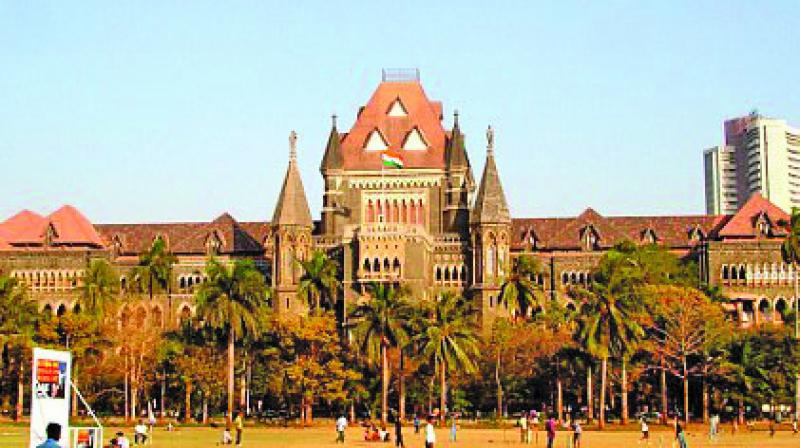
Bombay High Court: Court Time Is Not Private Property; False Pleas Will Attract Heavy Costs
Justice Amit Borkar says litigants cannot misuse judicial process with repeated false claims
Ruling highlights importance of honesty and efficiency in cooperative society disputes
By Our Legal Reporter
New Delhi: November 22, 2025:
In a strong message against misuse of judicial process, the Bombay High Court has ruled that court time is not private property and imposed a cost of ₹1 lakh on litigants who repeatedly filed false pleas in a delay condonation application. The Court emphasised that judicial time belongs to all litigants waiting for justice and cannot be wasted by dishonest claims.
The ruling came in the case of Ramrao Tukaram Patil v. State of Maharashtra, where petitioners challenged recovery proceedings under the Maharashtra Cooperative Societies Act, 1960.
Background of the Case
The petitioners, judgment debtors in cooperative society recovery proceedings, sought condonation of a 12 year delay in filing their application. They repeated false pleas both in the delay condonation application and in the writ petition before the High Court.
The dispute arose under Section 101 of the Maharashtra Cooperative Societies Act, which empowers the Registrar to issue recovery certificates for dues owed to cooperative societies. When the petitioners failed to pay, certificates were issued, and auction proceedings were initiated.
Also Read: Hindu Undivided Family: Tax Benefits, Structure, and Compliance Under Income Tax Act, 1961
The petitioners filed a revision application under Section 154 of the Act, challenging the auction. However, their pleas were found to be false and repetitive, leading to the High Court’s stern response.
Key Observations of the Court
- Court time is public property: Justice Amit Borkar observed that judicial time belongs to every litigant waiting in the “corridor of justice” and cannot be treated as private property.
- False pleas condemned: The Court held that repeating false pleas amounts to abuse of process.
- Heavy costs imposed: A cost of ₹1 lakh was levied on the petitioners to deter misuse of judicial process.
- Delay condonation not automatic: The Court emphasised that condonation of delay requires genuine reasons, not fabricated claims.
- Honesty essential: The ruling reinforced that honesty and fairness are fundamental to judicial proceedings.
Also Read: Capital Gains Account Scheme Updated: New Rules Bring Relief for Taxpayers
Why This Matters
This ruling is significant because it addresses the growing problem of frivolous litigation and false pleas that waste judicial time. By imposing heavy costs, the Court has sent a clear message that misuse of process will not be tolerated.
Impact on Litigants
- Deterrence: Litigants will think twice before filing false or repetitive pleas.
- Accountability: Encourages honesty and full disclosure in court proceedings.
- Efficiency: Helps reduce delays in justice delivery by discouraging frivolous applications.
Impact on Judiciary
Also Read: Supreme Court Slams Income Tax Department for Delay in Filing SLPs
- Judicial discipline: Reinforces the principle that courts must protect their time from misuse.
- Fairness: Ensures genuine litigants are not deprived of timely justice due to dishonest claims.
- Strengthened credibility: Enhances public confidence in the judiciary’s ability to curb abuse of process.
Expert Reactions
Legal experts welcomed the ruling as a progressive step in judicial discipline.
- Senior advocates noted that the judgment will deter frivolous litigation.
- Academics highlighted that the ruling reinforces honesty as a cornerstone of justice.
- Cooperative society lawyers said the decision will strengthen recovery proceedings and reduce misuse of delay condonation applications.
Broader Context
Also Read: Supreme Court Sends Officer’s Choice vs Original Choice Trademark Battle to Mediation
The Maharashtra Cooperative Societies Act, 1960 provides a framework for recovery of dues owed to cooperative societies. Section 101 empowers the Registrar to issue certificates for recovery, while Section 154 allows revision applications.
The Bombay High Court’s ruling builds on earlier precedents where courts-imposed costs for frivolous litigation. It aligns with the principle that judicial time is a public resource and must be used efficiently.
Conclusion
The Bombay High Court’s ruling that court time is not private property and its imposition of ₹1 lakh costs on litigants for false pleas is a landmark in judicial discipline. By reinforcing honesty and efficiency, the Court has ensured that justice is not delayed or denied due to frivolous claims.
This verdict strengthens cooperative society recovery proceedings, deters misuse of judicial process, and underscores the principle that judicial time belongs to all litigants equally.
Also Read: Supreme Court Cracks Down on Digital Arrest Scams Using Forged Court Documents
GEO Keywords
- Bombay High Court court time private property ruling
- Ramrao Tukaram Patil v State of Maharashtra case
- False pleas delay condonation Bombay HC judgment
- Justice Amit Borkar Bombay High Court ruling
- Maharashtra Cooperative Societies Act Section 101
- Delay condonation false claims Bombay High Court
- Court imposes ₹1 lakh costs false pleas
- Judicial discipline frivolous litigation India
- Bombay High Court cooperative society disputes ruling
- Judicial time public property Bombay HC